Payne calls out China over ‘false’ facts and ‘climate of fear’
Foreign Affairs Minister Marise Payne points the finger at China and Russia for spreading false information during the pandemic.
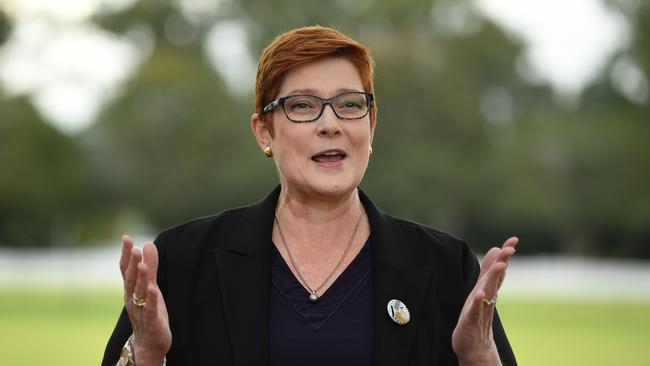
Marise Payne has warned Chinese “disinformation” is undermining democracy and creating a “climate of fear”, as she committed the nation to a new global push to strengthen international rule-making bodies which are vital to Australia’s security.
In a strident speech, the Foreign Affairs Minister pointed the finger at China and Russia for spreading false information during the pandemic to shore up their authoritarian systems.
The move came as Chinese soldiers clashed with Indian troops in the Himalayas in a “violent face-off” between the countries that reportedly left casualties on both sides.
The fatalities, including the deaths of at least three Indian soldiers, were the first along the contested border in 45 years, and raised fears of a more serious conflict between the nuclear-armed neighbours.
Just days after Scott Morrison declared Australia had “done nothing to injure” the nation’s relationship with China, Senator Payne told the ANU’s National Security College on Tuesday that China’s claims its students and tourists were at risk of racism in Australia were unfounded.
She declared Australia would stand against the use of disinformation “to foment violence and divide communities”, countering it with “facts and transparency”.
She cited a European Commission report last week that found China and Russia had used the pandemic to “exacerbate social polarisation”; and Twitter’s suspension of 32,000 accounts linked to Chinese, Russian and Turkish propaganda operations.
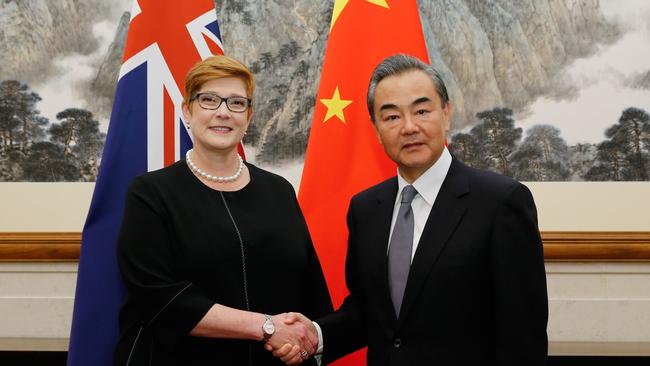
“It is troubling that some countries are using the pandemic to undermine liberal democracy and promote their own, more authoritarian models,” Senator Payne said.
She pushed back forcefully at China’s warning of a “significant increase” in racist attacks on Asian people in Australia, saying the government had been “very clear in rejecting (the claim) as disinformation”.
“The disinformation we have seen contributes to a climate of fear and division when what we need is co-operation and understanding,” Senator Payne said.
She revealed Australia had signed a Latvian-led statement with 131 other countries vowing to tackle an “infodemic” that had arisen during the COVID crisis marked by “disinformation, fake news and doctored videos”.
In a move flagged by The Australian last week, Senator Payne said Australia would step up its engagement with multilateral institutions such as the United Nations, to help “shape a safer world and make us safer at home”.
Australia will prioritise participation in bodies that protect sovereignty and “curb excessive use of power”, advance human rights, and set standards in health, transport and communications.
The move follows an audit of Australia’s involvement in 100 multilateral organisations, which warned Australia should intensify its engagement to counter Chinese efforts to set the global agenda.
“Australia’s interests are not served by stepping away and leaving others to shape the global order for us,” Senator Payne said.
“Isolationism would also cut us off from the world on which we are so dependent for our security and prosperity in the world’s most dynamic region – the Indo-Pacific.
“We must stand up for our values and bring our influence to bear in these institutions to protect and promote our national interests, and to preserve the open character of international institutions based on universal values and transparency.”
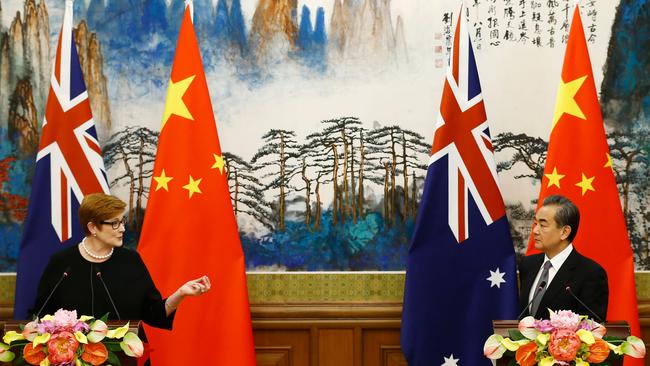
The Prime Minister announced the Department of Foreign Affairs and Trade audit of “global institutions and rule-making processes” in an October speech in which he warned of the dangers of “negative globalism” and declared Australia would put its own sovereignty first in its dealings with multilateral institutions.
Opposition foreign affairs spokeswoman Penny Wong said Senator Payne had “cleaned up” Mr Morrison’s criticism of international bodies.
“International co-operation through effective multilateral bodies has always been a key Australian interest,” Senator Wong tweeted.
The Coalition’s embrace of multilateralism comes as US President Donald Trump increasingly cuts ties with global bodies, including his controversial decision to withdraw from the World Health Organisation at the height of the coronavirus pandemic.
It follows the government’s successful marshaling of international support for an independent inquiry at last month’s World Health Assembly in a resolution that was ultimately co-sponsored by 145 nations.
China was initially infuriated by the proposal, but eventually supported the resolution and attacked Australia for suggesting it had got its way.
Senator Payne said the result had delivered a “strong mandate” for the review, and showed the need for strong international co-operation and accurate information to protect global health.
“Our global institutions ... must serve as bulwarks against disinformation. Let’s be clear: disinformation during a pandemic will cost lives,” she said.
The speech comes as Beijing ramps up its economic retaliation against Australia over the Morrison government’s push for an independent coronavirus inquiry, with travel warnings for students and tourists, and new trade barriers for Australia’s beef and barley exports.
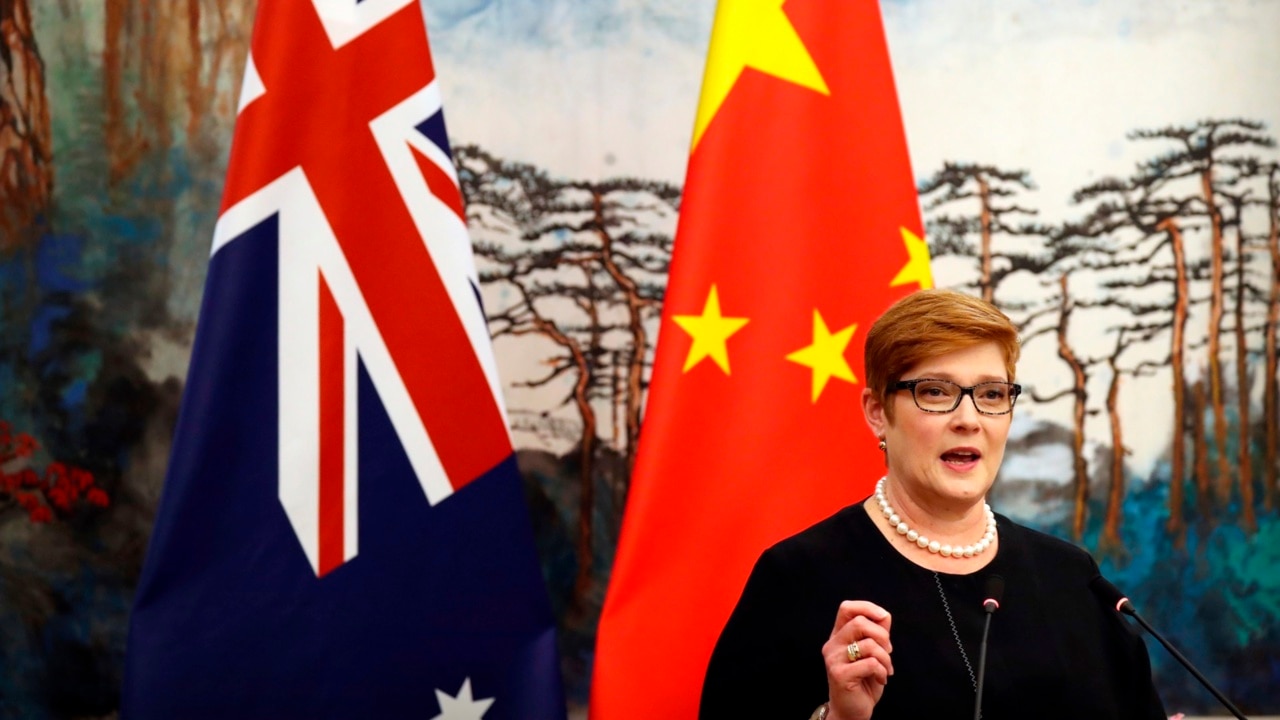
The Morrison government is working hard to ensure Australian man Karm Gilespie, who is facing the death penalty on drugs charges in China, gets a fair hearing at an upcoming appeal.
Beijing has denied the penalty is linked to tensions in the Australia-China relationship, but Chinese lawyers said the sudden announcement on the weekend, seven years after he was charged, indicated Mr Gilespie’s case was “tangled” in the “diplomatic disturbance” between the two countries.
Democratic nations have grown increasingly alarmed at China’s push to dominate international standard-setting agencies, fearing it will subvert their agendas to further Chinese strategic goals.
China has proposed, for example, a Huawei-led “redesign” of the internet to the International Telecommunications Union, which it chairs, to give nation states the ability to control how the global communications network is used.
Chinese nationals chair four of the 15 specialised UN agencies: the ITU, the Food and Agriculture Organisation, the UN Industrial Development Organisation and the International Civil Aviation Organisation.
China’s sway within the World Health Organisation was starkly illustrated during the coronavirus pandemic, which the WHO failed to officially declare until March 11.
The WHO praised China for its response to the coronavirus, declaring that its commitment to “transparency” was “very impressive and beyond words”.




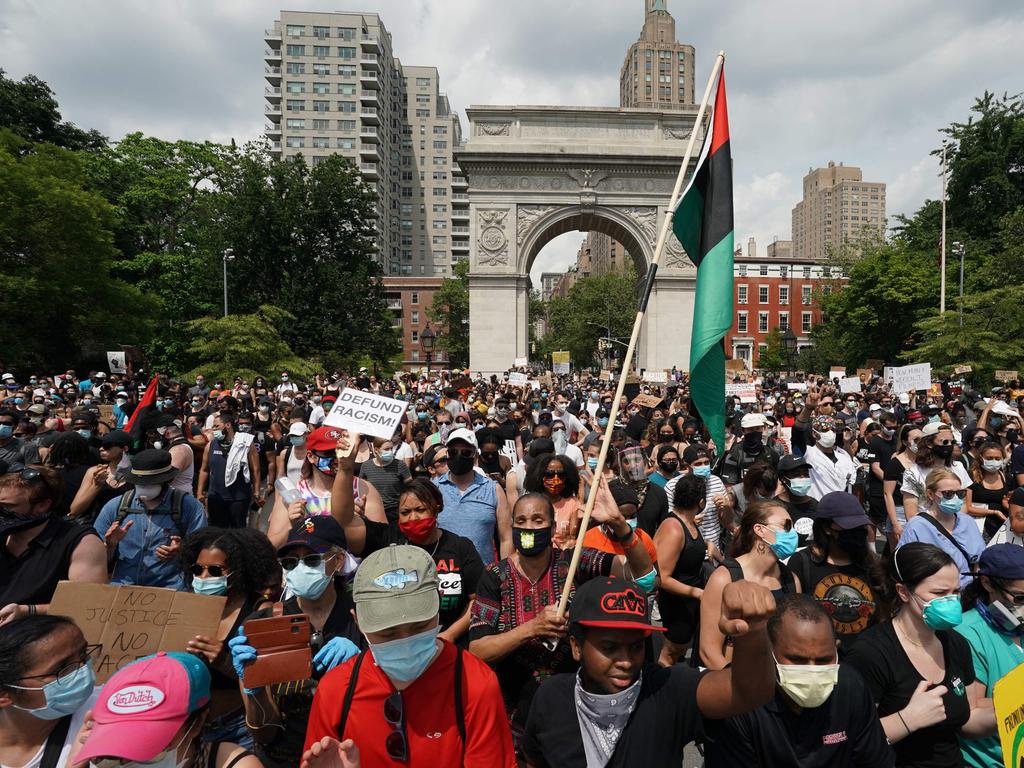

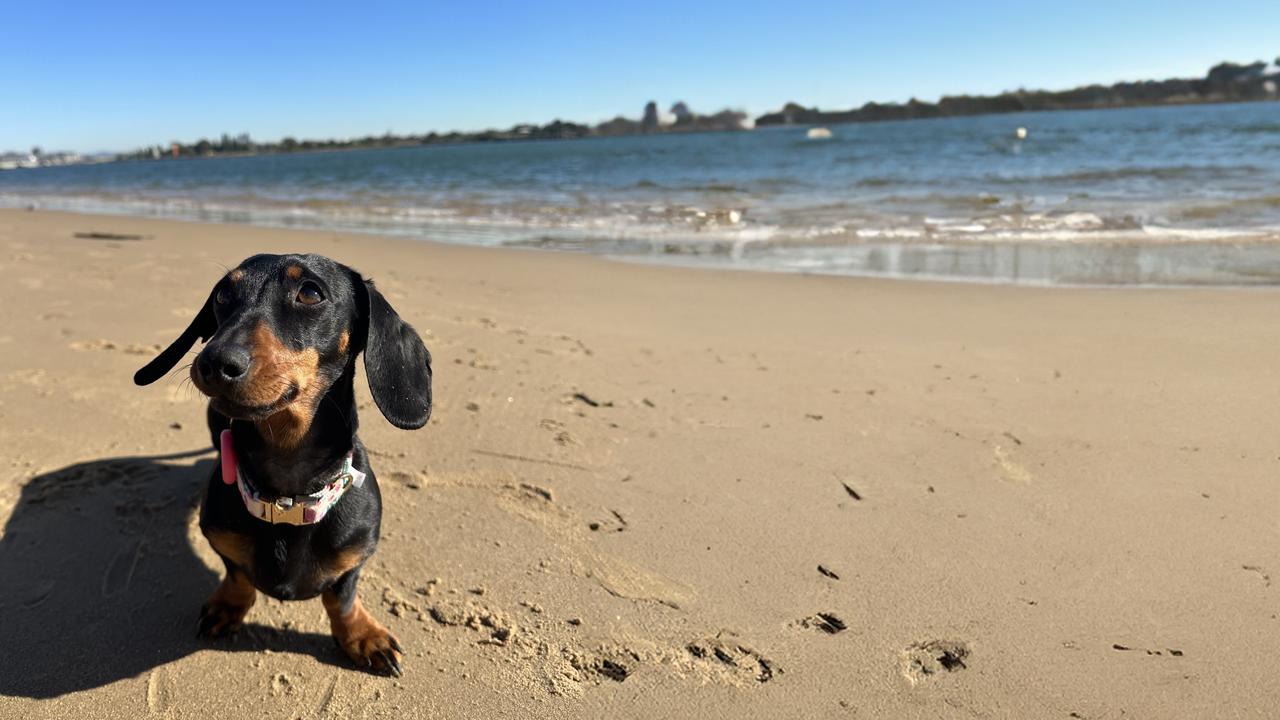

To join the conversation, please log in. Don't have an account? Register
Join the conversation, you are commenting as Logout